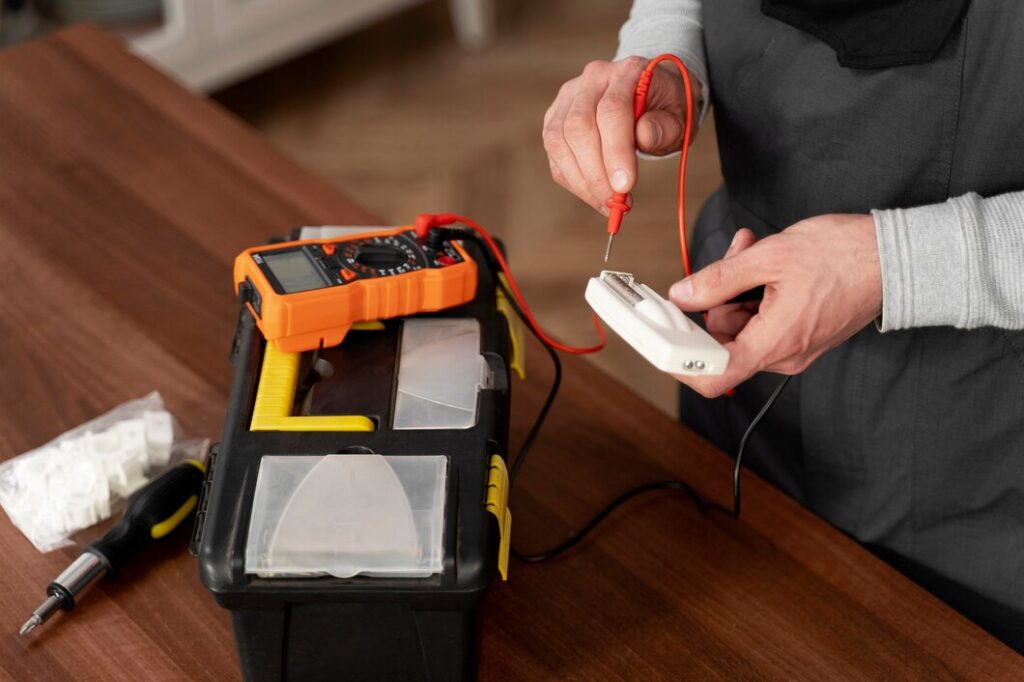
An EICR Electrical Certificate is an official document that confirms the safety and condition of a property’s electrical installation. It is issued after a qualified electrician carries out an Electrical Installation Condition Report (EICR). This report highlights whether the electrical systems are safe to use, compliant with UK regulations, or if any remedial work is required. An EICR Testing is more than just a piece of paper—it’s a safeguard for tenants, homeowners, and businesses. It ensures that electrical systems are safe, legally compliant, and well-maintained. Whether you are a landlord meeting legal obligations or a homeowner ensuring your family’s safety, arranging a professional EICR is an essential step in property management.
In London and across the UK, obtaining an EICR is essential for landlords, businesses, and homeowners to ensure safety, legal compliance, and peace of mind.
What is an EICR Electrical Certificate?
An EICR Testing is a detailed inspection Report that checks the overall health of electrical installations, including wiring, sockets, fuse boards, and other fixed electrical systems. During the inspection, the electrician identifies:
- Potential hazards like overloaded circuits or faulty wiring.
- Degradation of electrical systems due to wear and tear.
- Non-compliance with the UK Wiring Regulations (BS 7671).
- Urgent risks that need immediate attention
The report classifies issues under different codes (C1, C2, C3, FI), which indicate whether repairs are required urgently or as a recommendation.
Who Needs an EICR Electrical Certificate?
- Landlords – UK law requires landlords to provide tenants with a valid EICR every five years, or at the start of a new tenancy. This ensures rental properties are electrically safe.
- Homeowners – Even if not legally required, homeowners are strongly encouraged to obtain an EICR every 10 years for safety.
- Businesses – Commercial properties must also comply with workplace safety regulations by maintaining valid EICRs.
Why is an EICR Important?
- Legal Compliance
Landlords who fail to provide an EICR risk fines of up to £30,000 and may face legal action. - Safety Assurance
Faulty electrics are one of the leading causes of house fires in the UK. An EICR helps prevent accidents, electrical shocks, or fire hazards. - Insurance Validity
Many insurers require a valid EICR Electrical Certificate to approve claims related to electrical faults or fires. - Property Value
A valid EICR provides assurance to potential buyers or tenants that the property is Safe and Compliant.
How Often Should You Get an EICR?
- Landlords: Every 5 years, or at the start of a new tenancy.
- Homeowners: Every 10 years, or sooner if the property is older.
- Commercial properties: Typically every 5 years, though high-risk environments may require more frequent inspections.
The EICR Process
When a qualified electrician carries out an EICR, the process usually includes:
- Visual Inspection – Checking for obvious damage, deterioration, or hazards.
- Testing – Assessing wiring, sockets, fuses, and circuits.
- Reporting – Recording results, highlighting defects, and coding them accordingly.
- Issuing the Certificate – Providing the official document along with recommendations for remedial work if needed.
Conclusion
An EICR Testing is more than just a piece of paper—it’s a safeguard for tenants, homeowners, and businesses. It ensures that electrical systems are safe, legally compliant, and well-maintained. Whether you are a landlord meeting legal obligations or a homeowner ensuring your family’s safety, arranging a professional EICR is an essential step in property management.
By hiring a certified electrician, you gain peace of mind that your property meets the required safety standards, reducing risks of electrical hazards and improving long-term efficiency.



